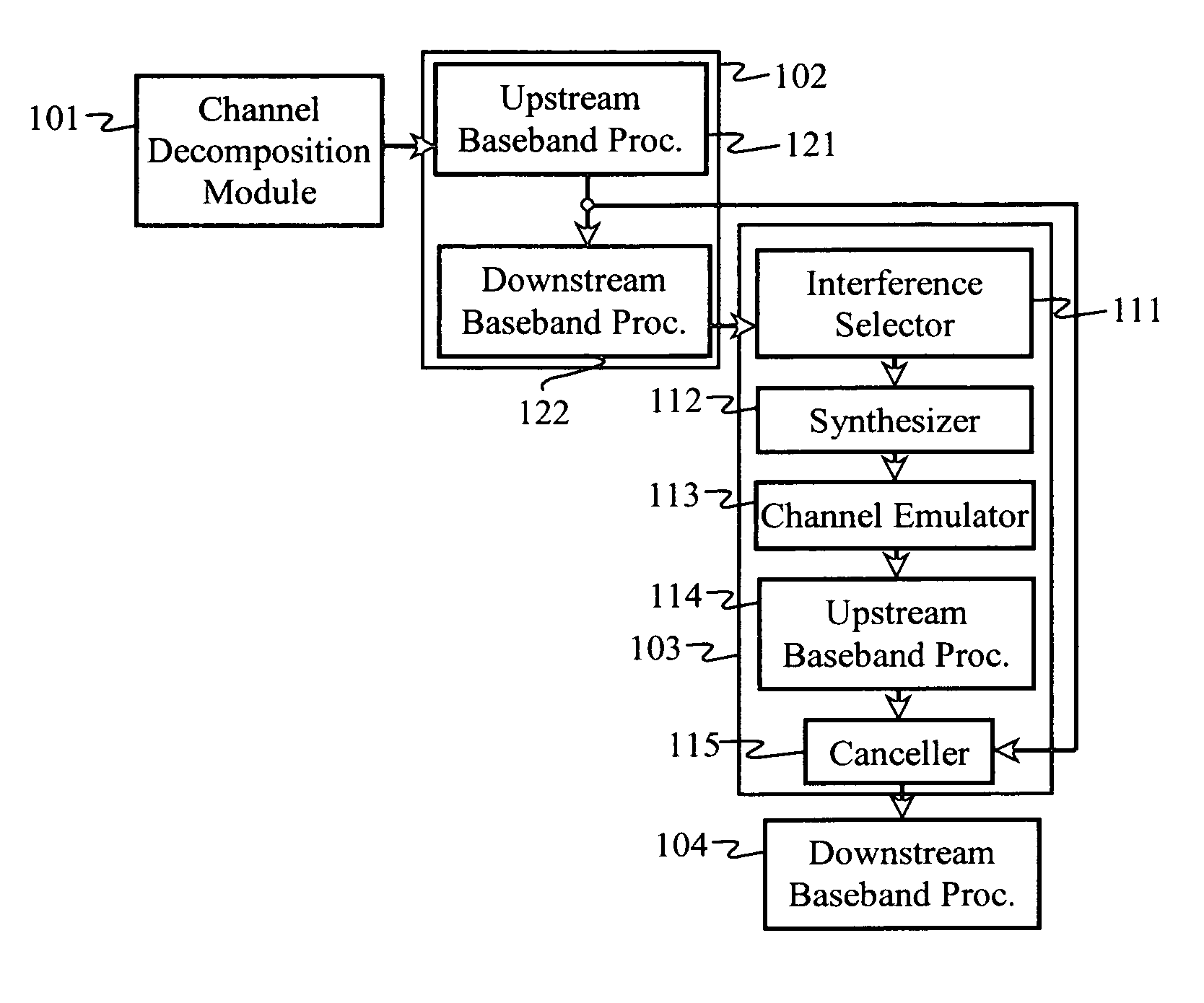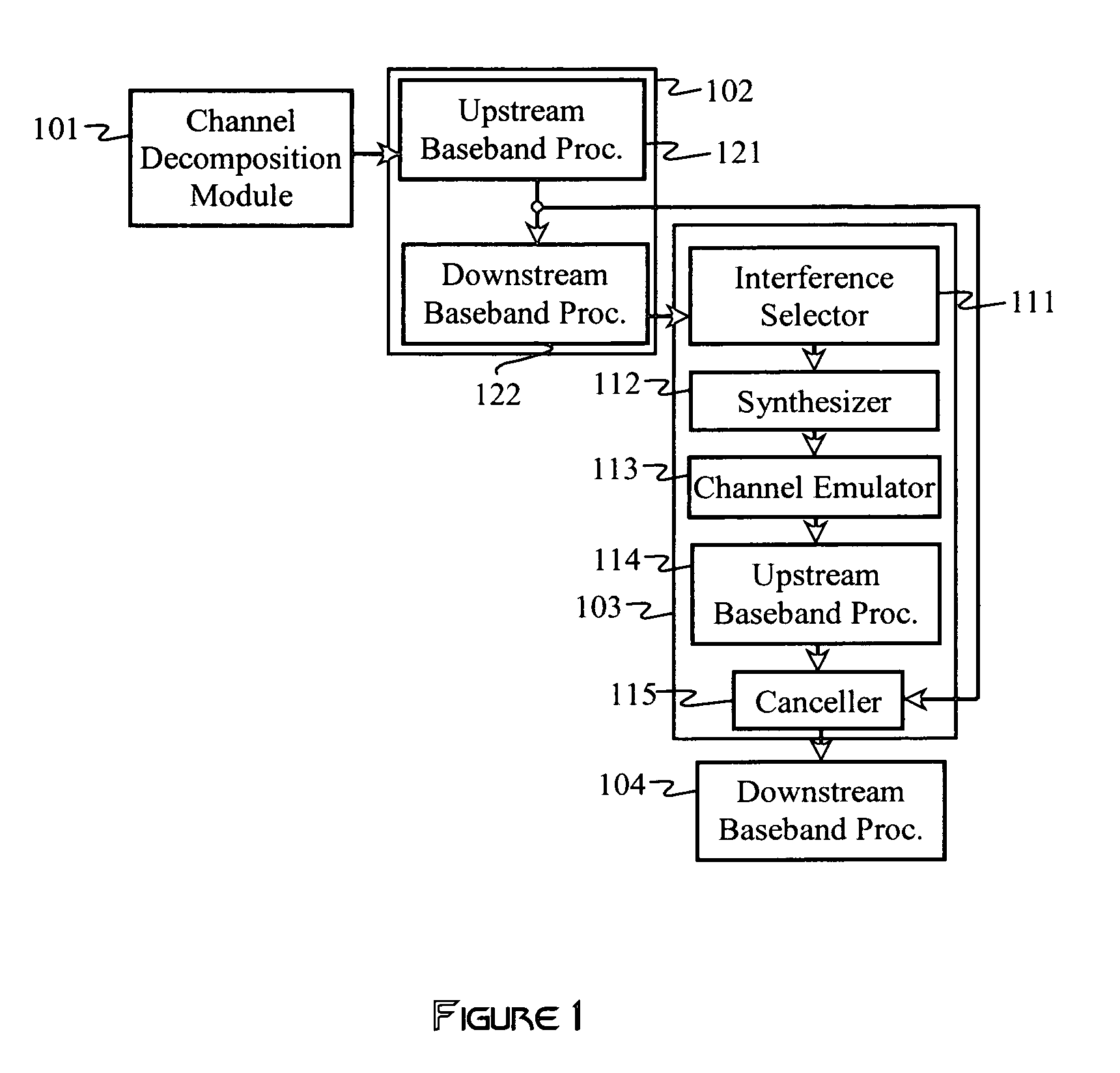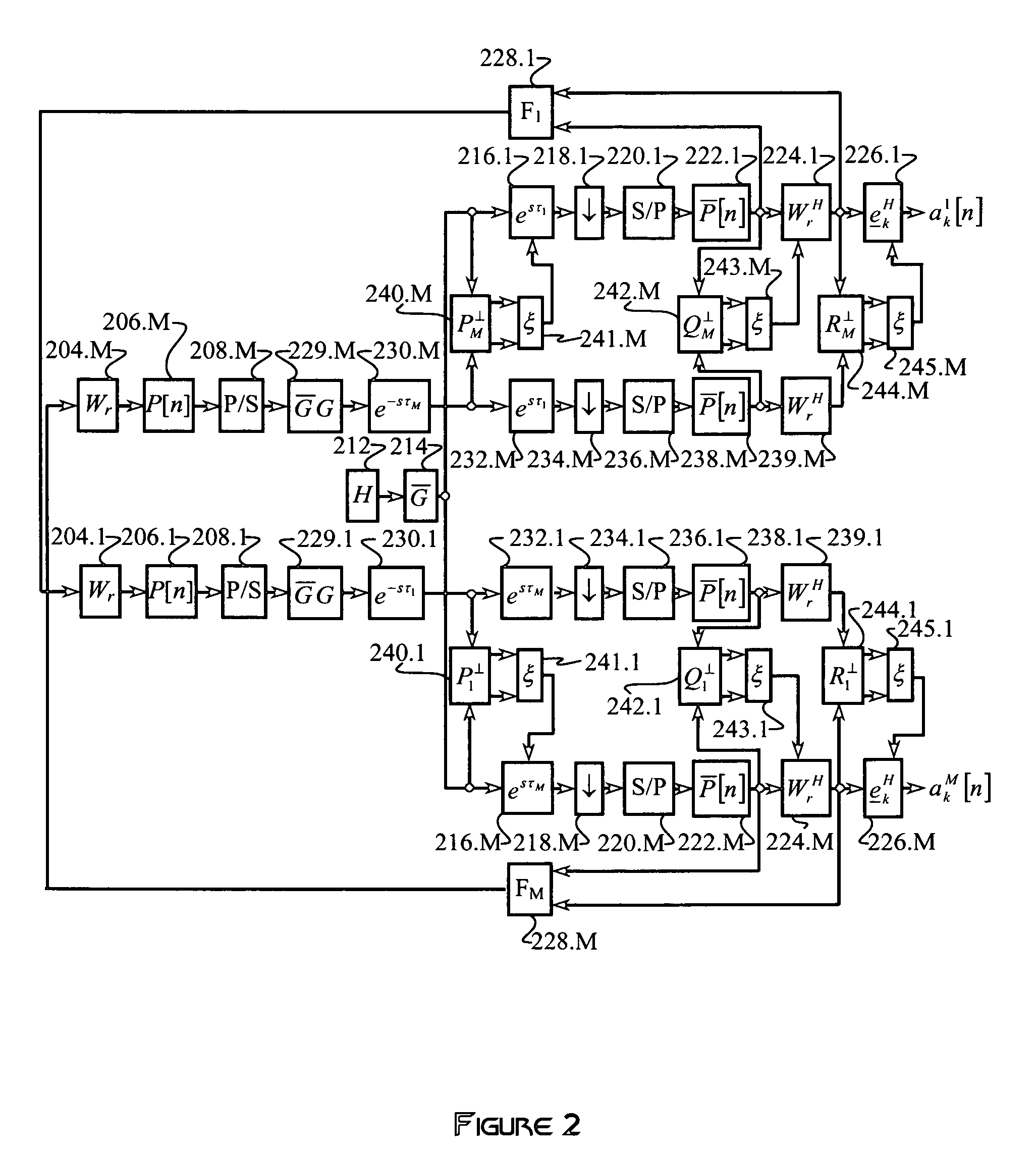Advanced signal processors for interference cancellation in baseband receivers
a signal processor and receiver technology, applied in the field of signal processing for wireless communications, can solve the problems of interference-limited cdma systems, and coded signals interfering with one another
- Summary
- Abstract
- Description
- Claims
- Application Information
AI Technical Summary
Benefits of technology
Problems solved by technology
Method used
Image
Examples
Embodiment Construction
[0026]While the invention is susceptible to various modifications and alternative forms, specific embodiments thereof are shown by way of example in the drawings and are herein described in detail. It should be understood, however, that the exemplary embodiments are not intended to limit the invention to the particular forms disclosed. Instead, the invention is to cover all modifications, equivalents, and alternatives falling within the spirit and scope of the invention as defined by the claims.
[0027]FIG. 1 illustrates one of many possible multi-mode receiver embodiments of the invention that include a channel decomposition module 101, a baseband receiver 102, and an interference canceller 103. The baseband receiver 102 and the interference canceller 103 are configured to process received signals transmitted in accordance with a first transmission protocol (i.e., a first mode).
[0028]The baseband receiver 102 may be regarded as comprising an upstream baseband processor 121 and a down...
PUM
 Login to View More
Login to View More Abstract
Description
Claims
Application Information
 Login to View More
Login to View More - R&D
- Intellectual Property
- Life Sciences
- Materials
- Tech Scout
- Unparalleled Data Quality
- Higher Quality Content
- 60% Fewer Hallucinations
Browse by: Latest US Patents, China's latest patents, Technical Efficacy Thesaurus, Application Domain, Technology Topic, Popular Technical Reports.
© 2025 PatSnap. All rights reserved.Legal|Privacy policy|Modern Slavery Act Transparency Statement|Sitemap|About US| Contact US: help@patsnap.com



